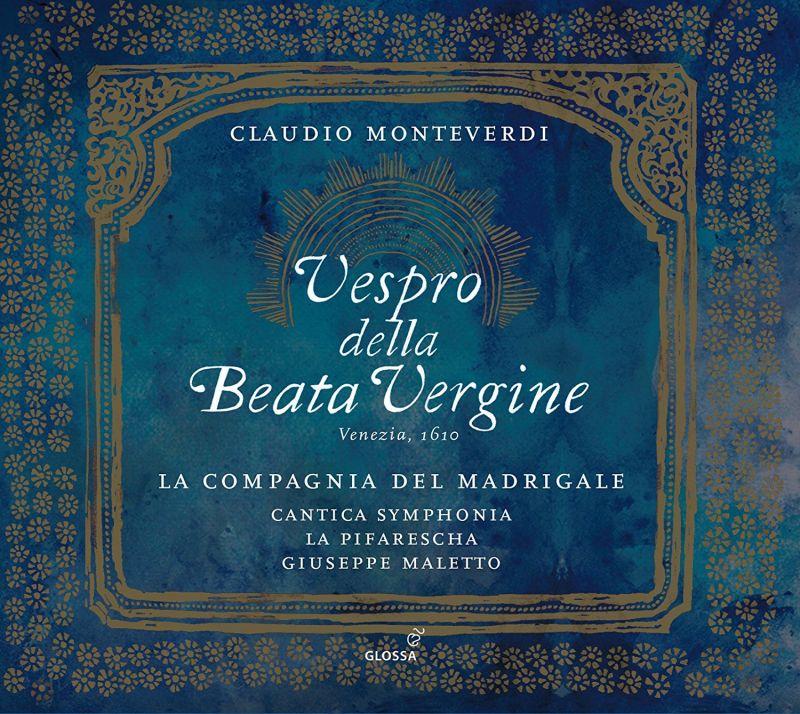MONTEVERDI Vespers
View record and artist detailsRecord and Artist Details
Composer or Director: Claudio Monteverdi
Genre:
Vocal
Label: Glossa
Magazine Review Date: 07/2017
Media Format: CD or Download
Media Runtime: 124
Mastering:
DDD
Catalogue Number: GCD 922807

Tracks:
| Composition | Artist Credit |
|---|---|
| Vespro della Beata Vergine, 'Vespers' |
Claudio Monteverdi, Composer
Cantica Symphonia Claudio Monteverdi, Composer Giuseppe Maletto, Conductor La Compagnia del Madrigale La Pifarescha |
Author: Lindsay Kemp
What really makes this recording special, however, is a daring interpretative approach that makes it easily one of the most individual and distinctive Vespers on record. ‘Haste and good work do not go together’, Giuseppe Maletto quotes the composer as saying, and sure enough this is slow Monteverdi, really slow. Not just that but largely legato as well, as is evident right from the opening. The reasoning is based not just on a rejection of the idea that the modern tendency towards ever-faster tempos must necessarily be a good thing but also on a desire to establish a style that does not rely so much on accented and ‘bulge’ notes, which, says Maletto, contribute to a weakening of the horizontal line. The result is a performance in which ‘legato is considered as a fundamental principle, [and] we take all the time that is necessary’. For similar reasons (and in another trend-opposing move), vocal ornamentation is firmly resisted.
Does that make it bland, or sleepy? Well, clearly it is not going to be a punchily dramatic realisation in the manner of Gardiner’s (Archiv, 1/91), nor a turbo rush like Christina Pluhar’s (Virgin/Erato, 5/11, which, incidentally takes nearly 30 minutes less to play!). But while there are some dawdly moments in the choral psalms, for the most part this is a performance that reveals the immense beauty of the work, relishes the tensions of its interweaving lines and, within its chosen parameters, releases the madrigalian freedom of its ensemble declamation. Neither does it lack grandeur; the doxology at the end of ‘Laetatus sum’ is a massive outburst, the Sonata sopra Sancta Maria is grandly shaped, and the ‘Amen’ of the Magnificat is a hugely impressive terraced crescendo. And if ‘Duo Seraphim’ and ‘Audi coelum’ lose something of their usual ardency, the Marian meditations of the latter gain instead a seductive trance-like character. This, in other words, is a performance that deserves a hearing; like a Klemperer Beethoven symphony, it shows a faith in the build of its music that says everything can be inspected and savoured, nothing needs to be hurried.
The sound is clear and pleasing, though the solo singers are sometimes set further back than might be expected, at the risk sometimes of a certain lack of colour. The two-disc set also includes Monteverdi’s alternative, six-part setting of the Magnificat, no less carefully tended than the rest.
Discover the world's largest classical music catalogue with Presto Music.

Gramophone Digital Club
- Digital Edition
- Digital Archive
- Reviews Database
- Full website access
From £8.75 / month
Subscribe
Gramophone Full Club
- Print Edition
- Digital Edition
- Digital Archive
- Reviews Database
- Full website access
From £11.00 / month
Subscribe
If you are a library, university or other organisation that would be interested in an institutional subscription to Gramophone please click here for further information.




